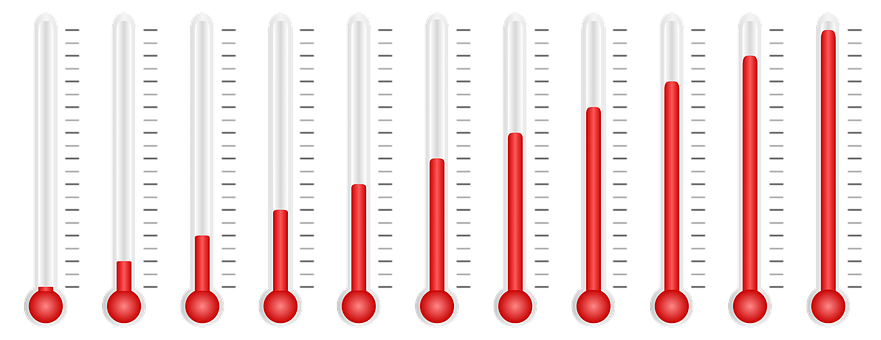
What would you say if I told you there is a concept in the Bible that would help us make better decisions in every area of our lives, personal and political, if we would but know about it and put its lessons into practice? Well, there is one, and we’ve often ignored it at our peril. Let me highlight this concept as it’s encountered in the Bible, then I’ll apply it in today’s world.
In Luke Chapter 11, verses 24 through 26, we read the following:
“When an evil spirit comes out of a man, it goes through arid
places seeking rest and does not find it. Then it says, ‘I will return
to the house I left.’ When it arrives, it finds the house swept clean
and put in order. Then it goes and takes seven other spirits more
wicked than itself, and they go in and live there. And the final
condition of that man is worse than the first.” NIV
Jesus of Nazareth was the greatest expert on human nature ever born. What he says here is that it is not enough to clean house and get rid of nefarious influences, there must also be a subsequent infilling. As he explains in this other teachings, this is because we are all slaves by nature. In spite of what we like to imagine, we lack the ability to chose aright and follow up with proper action. We are subject, no matter what we hope or say, to forces greater than ourselves. Thus, when our lives are “swept clean and put in order,” there will still be a power vacuum in our lives that invites greater powers in. The question is therefore not, am I dominated, but rather, what is it that dominates me? Is it a demon, or is it God? You will be controlled by somebody or something; the only thing we can choose is if that entity is benevolent or evil. As we shall see, this goes for individuals, as Jesus’ example depicts, as well as for groups of people, as we read about in the newspapers. Let’s see if this isn’t true.
First, look at the individual behavior of those not explicitly Christian. What happens at AA meetings, where there is no mention of Jesus of Nazareth? First of all, hopefully everybody is sober. There is a demon of alcoholism, a spirit that derives worship when we bow down to the bottle and not to our Savior. Don’t believe this is true? Watch an alcoholic or any drug addict, and you’ll see that there is a supernatural, evil, and irrational dimension to their behavior that seeks their ultimate destruction. The creativity, the relentlessness, the sheer single-mindedness of their obsession with alcohol or drugs is full and sufficient testimony to the existence of personal, intelligent evil. So back to the meeting. Most of the time, there’s no alcohol, but what is there instead? Often it’s cigarettes and coffee, in excess. The people are still addicts, they still offer worship to, in the words of Pat Robertson, a different “vegetable.” They worship the tobacco plant and the coffee bean, not a fungus. This is no doubt an improvement, but the underlying dynamic is intact.
Overt Christians are not exempt from the same pressures. Many Christians meet Jesus and rejoice in the forgiveness of sins he has already purchased for them. If they don’t fill themselves with fellowship and teaching, however, what usually happens? They fall away, as Jesus predicts when talking about the seed sown in shallow soil, and are lost. They realize they are forgiven, but they are not filled. Remember, we have two problems. One is guilt over past sins, and the other is powerlessness to stop sinning in the future. If you have the former but not the latter, you will become discouraged and subject to even greater condemnation for having known the truth and done nothing about it.
Then, and more to the point in an election year, we see the same phenomenon in human behavior on a national scale. If I have one criticism to make of U.S. foreign policy over the past century, it is that we think other people are like us. We derive our ideals that forged our liberal capitalist democracy from our history as being subject to British common law. The ideals of common law were hammered out over the past millennium, and can be formally traced to the Magna Carta in 1215. We and other British colonies are unique in this heritage, yet we think everybody shares our democratic ideals. Not so. Even the French have a very different attitude towards law, government and the rights of man from the British.
So what happens is this: we Americans go to the rescue of beleaguered people and deliver them from their oppressors. We have done this time and again, and the results of those ventures vary to the extent that we recognized the existence of a power vacuum after their deliverance. In cases where no vacuum was allowed, the transition and recovery were smooth. Witness Germany and Japan after WWII. The Marshall Plan, NATO and the presence of U.S. troops were sufficient to maintain order and allow an indigenous leadership to take hold. But what about when we allow a vacuum to develop without taking steps to fill it? Examples abound in the past 100 years. In approximate chronological order:
- Europe and the Middle East after WWI. The Versailles Treaty with its unrealistic, vindictive terms left the greatest power vacuum the world had ever seen. Germany, deprived of the Kaiser and the General Staff, hatched Hitler and his bag of tricks. In the Middle East, the fall of the Ottoman Empire produced not a free and self-governing group of nations as T. E. Lawrence recommended, but rather a crazy quilt pattern of colonial dictates that had nothing to do with nationalities, sensibilities, or the promises made to the actors by the victorious allies. The result is the mess we have today, with Britain “giving” what they don’t own (Palestine) to somebody who doesn’t deserve it (Jews), to paraphrase and Arab leader. You know the rest of the story.
- India and Pakistan after the British. Whoa! Talk about trouble that’s yet to subside, take a look at these two nuclear powers! They were separated on the basis of religion, but find that even the world’s highest mountain range is too low to keep them from each other’s throats. Many of the British practices were unfair and exploitative, but at least there was an enforced peace.
- Viet Nam after the Americans. Throw out the U.S. and what do you get? A corrupt, unmotivated ruling elite who pillage and exploit without helping the cause. And that was before the North Vietnamese won!
- Iran after the Shah. Was he good? Not always, but he was not all bad. He did much to modernize Iran and lead the people out of the retrograde influences of Mohammedism that handcuffed the people up until the Shah’s rapprochement with the West. And after he was ejected? Some of the most harsh, ruthless and unstable ideologues seen in this century. Why? A power vacuum.
- Soviet Union after the Communists. Yeltsin was corrupt and unable to fill the resulting power vacuum, and so now we have KGB strongman Putin taking his place. Is this a coincidence, or the result of a natural law at work that abhors a vacuum? Q: When it comes to invading other countries to “put down civil unrest and rescue our nationals,” what is the difference between Putin and Hitler? A: Putin speaks Russian.
- South Africa after apartheid. This was every liberal’s flavor du jour in terms of foreign policy reform when the whites were in charge. The Boers were morons in many ways, and deserve the fate they received at the hands of the blacks when the sun set on their little game. Yet at least they had an orderly nation with the best economy on the continent when they ruled. Remember, the Bible talks a lot more about the importance of order than it does civic freedom. So what do South Africans have now that the blacks are in charge, but the highest incidences of rape, AIDS, venereal disease, social and political mayhem and economic collapse on that same continent? Except perhaps Zimbabwe after Ian Smith? But at least blacks are in charge in both places, so you don’t hear a peep from the Hollywood elite. Racism at its worst. Again, a power vacuum was to blame.
- Iraq after Saddam. We see that Hussein is a problem, so we head in and give him a new style necktie. Is he the problem? In large degree yes, but he’s not the only problem. The real problem is that Iraq, like so many cultures that have not experienced an Enlightenment, is tribal in nature. The request of the indigenous leaders after Hussein’s expulsion was for statues of George Bush, to be the new tribal chief, if you will. Yet what did we do? We offered them democratic elections, something they were unfamiliar with, as if they were electors in Iowa voting in the first caucus of the year. The result? A power vacuum that almost cost Iraq its future and the American administration its legacy.
These examples are presented in a necessarily incomplete degree, yet the point remains: in national life as well as that of the individual, we cannot tolerate power vacuums. Evil never rests, and we are most susceptible to its incursions after we are relieved of oppression. If the void, whether personal or national, is not quickly filled with good, it will soon be filled with bad. The choice is not normal>whether or not it is filled, but with what it will be filled. A person sweeps and puts their life in order through repentance, and it follows they must in very short order be filled with the Holy Spirit if they are to gain power to succeed. A nation that tosses out the oppressive leader must also install a more benevolent regime, with all celerity, if their fate is not also to be “worse than the first.” Jesus knows us better than we know ourselves, and it behooves us to stick our noses in the Bible and save ourselves the peril of rediscovering these truths anew in each generation. Until we deal with our inherent powerlessness, both individual and collective, we’re just palliating symptoms and repeating life’s, and history’s, errors.
